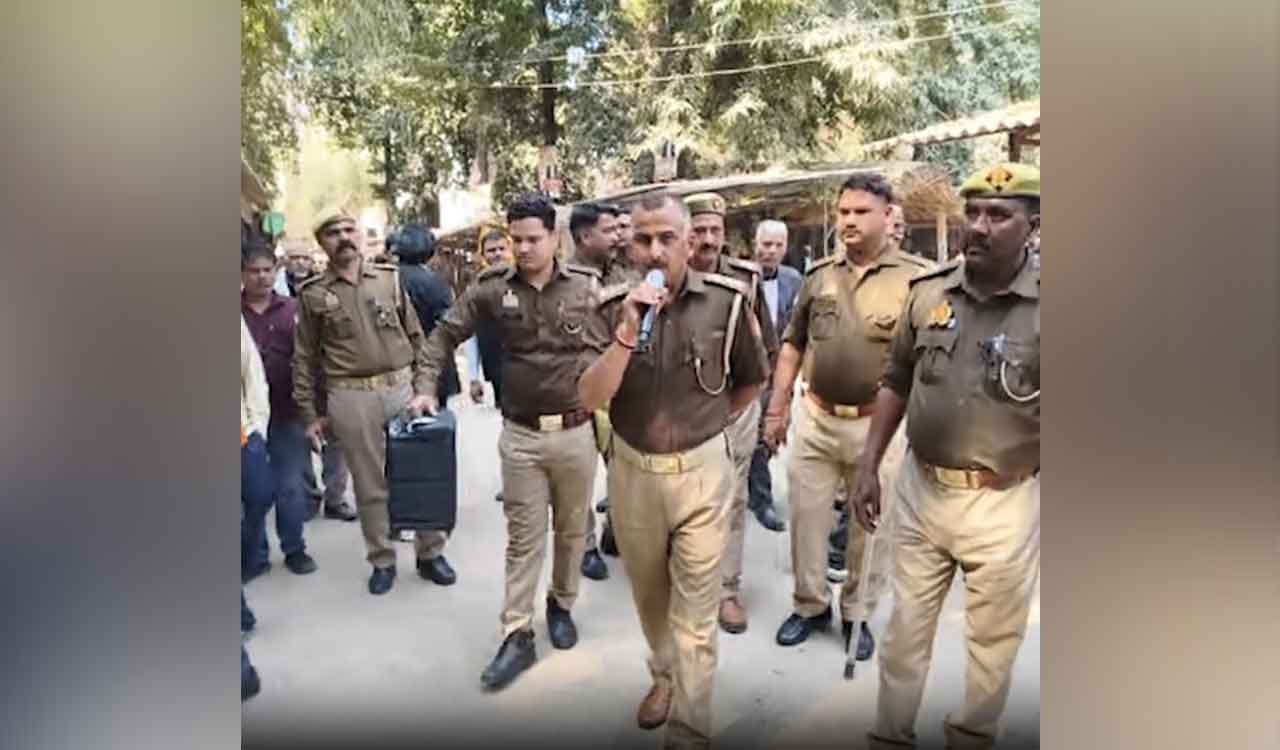SC uses Article 142 to quash POCSO case against man who married victim
In a rare decision, the Supreme Court quashed a POCSO conviction under Article 142, ruling that the relationship between the accused and the victim, now his wife, stemmed from love, not lust. The Court cited compassion, family stability, and justice

New Delhi: In a rare case, the Supreme Court has exercised its plenary powers under Article 142 of the Constitution to quash POCSO proceedings against a man for entering into a sexual relationship with a girl, then a minor, and later marrying her, saying “the crime was not the result of lust but love”.
A bench of Justices Dipankar Datta and A G Masih noted that the wife (victim) has stated that she was married to the man (convict), and they have a one-year-old boy and are now leading a happy life with the father of the girl, also wishing that the criminal proceedings against her daughter’s husband be brought to an end.
The bench said, “We are conscious of the fact that a crime is not merely a wrong against an individual but against society as a whole. When an offence is committed, it wounds the collective conscience of the society and therefore the society, acting through its elected lawmakers, determines what would be the punishment for such an offence and how an offender should be dealt with, to deter its recurrence.” It said that criminal law is a manifestation of the sovereign will of society, but the administration of such law is not divorced from practical realities.
“Rendering justice demands a nuanced approach. This court tailors its decisions to the specifics of each case: with firmness and severity wherever necessary, and it is merciful when warranted. It is also in the best interest of society to bring a dispute to an end, wherever possible,” the bench said in its October 28 order.
Justice Datta, who penned the verdict on behalf of the bench, said the court needs to balance the competing interests of justice, deterrence, and rehabilitation. The bench said the founding fathers of the Constitution conferred this court with the extraordinary power to do “complete justice” in proper cases, and this constitutional power stands apart from all other powers and is intended to avoid situations of injustice being caused by the rigid application of law.
“Per the law made by the legislature, the appellant, having been found guilty of a heinous offence, the proceedings in the present case, based on a compromise between the appellant and his wife, cannot be quashed. But ignoring the cry of the appellant’s wife for compassion and empathy will not, in our opinion, serve the ends of justice,” it said.
The bench said even the most serious offenders of law do receive justice moderated by compassion from the courts, albeit in appropriate cases, and given the peculiar facts and circumstances here, a balanced approach combining practicality and empathy is necessary.
“The appellant and the victim are not only legally married, they are also in their family way. While considering the offence committed by the appellant punishable under the POCSO (Protection of Children from Sexual Offences) Act, we have discerned that the crime was not the result of lust but love.
“The victim of crime herself has expressed her desire to live a peaceful and stable family life with the appellant, upon whom she is dependent, without the appellant carrying the indelible mark on his forehead of being an offender,” it said.
The top court said the continuation of criminal proceedings and the appellant’s incarceration would only disrupt this familial unit and cause irreparable harm to the victim, the infant child, and the fabric of society itself.
“Accordingly, resting on the foregoing considerations, the developments after the trial, and in the interest of rendering complete justice, we deem it appropriate to invoke our powers under Article 142 of the Constitution of India to quash the criminal proceedings against the appellant, including the conviction and sentence. Ordered accordingly,” it said.
Warning the convict of the consequences, the top court imposed a condition on the man for the relief and said he will not desert his wife and child, and also maintain them for the rest of their life with dignity.
“If, in future, there be any default on the appellant’s part and the same is brought to the notice of this court by his wife or their child or the complainant, the consequences may not be too palatable for the appellant,” the bench said and clarified that the order is in the unique circumstances and should not be treated as a precedent for any other case.
Related News
-
Trump orders release of UFO and extraterrestrial files
29 mins ago -
Municipality withdraws permission for prayers in government building in Uttarkhand
39 mins ago -
India AI Impact Summit 2026 positions AI as national infrastructure
47 mins ago -
Trump weighs limited military strike on Iran over nuclear deal
54 mins ago -
Odisha government reviews protection of Lord Jagannath temple lands
9 hours ago -
Iran holds military drills with Russia as US carrier moves closer
9 hours ago -
Hyderabad: Residents oppose Gandhi Sarovar Project over ‘forcible’ land acquisition
10 hours ago -
Australia level series as Indian women slide to 19-run defeat in second T20I
10 hours ago




